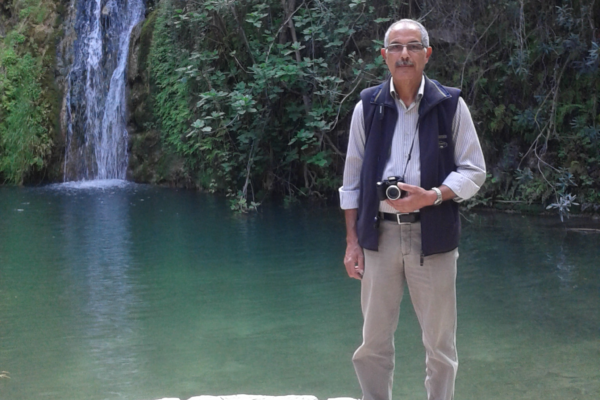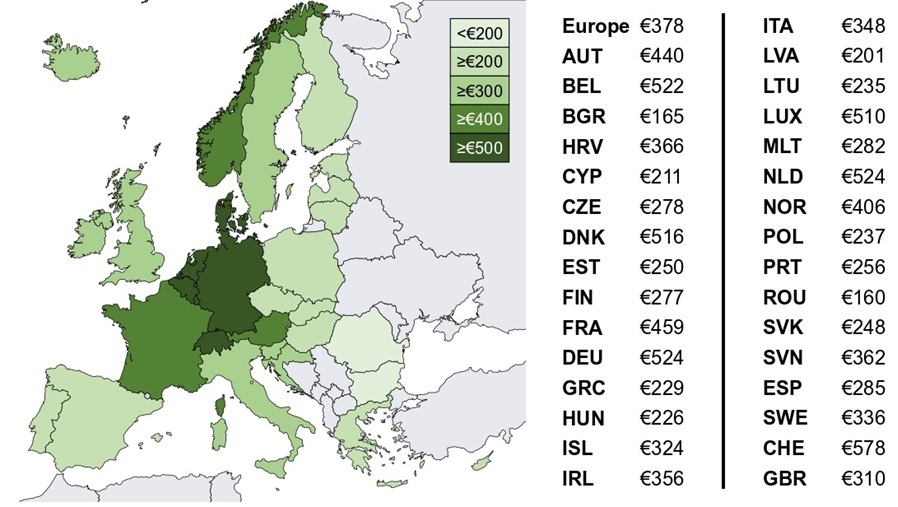|
In this issue:
|
|
|
|
|
Pressure grows for early detection programmes
Prostate cancer community points the way forward for EU politicians
|
|
|
|
|
How to live with the unexpected
|
|
|
Prostate Research and Treatments
Apalutamide Benefit For Non-Metastatic Castration Resistant Prostate Cancer
Apalutamide is one of the newer hormone treatments. It has been found a useful addition to traditional androgen deprivation therapy when the patient appears to be showing signs of disease progression. The earlier SPARTAN study showed a benefit of longer time to disease progression but the analysis of the early results did not include overall survival (OS) data. This latest analysis confirms that in patients with nonmetastatic castration-resistant prostate cancer (nmCRPC) overall survival is extended with apalutamide. There was a 22% reduction in the hazard of death in the apalutamide group compared with the placebo group.
The findings of this study demonstrate the value of apalutamide as a treatment option for nonmetastatic castration-resistant prostate cancer.
Read More: Apalutamide and Overall Survival in Prostate Cancer | European Urology
|
|
|
Covid-19 and Surgery Delay for High-Risk Localised PCa
The first wave in Covid-19 disease in many countries in Europe often led to a delay in non-Covid surgical procedures for various cancers. Some cancer conditions are regarded as time critical for surgery but this study suggests that radical prostatectomy (RP) for high-risk clinically localised prostate cancer (PCa) can be delayed safely for up to 6 months after diagnosis. This finding in JAMA Network Open could be of considerable comfort to patients and their physicians in the current circumstances.
The study analysed data from 32,184 men who underwent surgery for high-risk clinically localised PCa. A delay of up to 180 days from diagnosis did not appear to be linked to an increase in mortality.
Read more: Surgical delay and pathologic outcomes for clinically localized high-risk prostate cancer | JAMA Netw Open
|
|
|
Early mCRPC and Abiraterone plus prednisolone
The aim of this study was to evaluate the efficacy and safety of abiraterone acetate plus prednisolone in patients with early metastatic castration-resistant prostate cancer who failed first-line androgen deprivation therapy.
Abiraterone acetate plus prednisolone demonstrated a high prostate-specific antigen response rate of 55.1%, suggesting tumour growth still depends on androgen synthesis in patients with early metastatic castration-resistant prostate cancer. However, prostate-specific antigen-progression-free survival was shorter than that reported in previous studies. Considering the benefit-risk profile, abiraterone acetate plus prednisolone would be a beneficial treatment option for patients with chemotherapy-naive metastatic prostate cancer who show early castration resistance.
Read more: Japanese journal of clinical oncology
|
|
|
Items of Interest
Vitamin D and Cancer Incidence
Almost 10 million cancer deaths occur yearly worldwide. With increasing population size and aging, cancer incidence and mortality are likely to rise over time. The most abundant data on the protective role of vitamin D relate to colorectal cancer. The evidence is increasing for several more cancers, including prostate and breast . For some cancers there are too few studies, done in individual cohorts, to draw conclusions. The current literature is now providing more data relating to vitamin D and Covid-19. Obviously, we must not forget how this hormone is bound up with our bone health.
One of the forms of vitamin D is synthesised in human skin, and this is triggered by sun exposure (mostly UVB). With less efficiency, forms of vitamin D can also be absorbed from diet – such as oily fish, and vitamin D can be provided as a supplement. Vitamin D levels are inversely correlated to cancer risk. The vitamin has suppressive effects on neoplasia, and various mechanisms of action mediating cancer cell inhibition have been described.
Read more: The sunshine hormone: the many wonders of vitamin D | Cancer World Magazine
 |
|
|
The Cost of Cancer in Europe
Interview by Dr. Alberto Costa with Thomas Hofmarcher, health economist, IHE – The Swedish Institute for Health Economics, Lund, Sweden.
Cancer care is evolving rapidly and thus there is a constant need to keep the numbers up to date. Cancer is also high on the political agenda but far too often a comprehensive view on the economic impact of cancer is neglected in political deliberations. Hofmarcher’s interview and study show that cancer drug costs have increased markedly since the early part of this century. Overall, expenditure on cancer is much lower in eastern and southern Europe compared with central Europe. See Cancer Expenditure Table below
Read here the full interview: The cost of cancer in Europe | Cancer World Magazine
|
|
|
|
|
|
FREE SUBSCRIPTION TO EUROPA UOMO MONTHLY UPDATE
All previous issues are available on website: www.europa-uomo.org/newsletters/
|
|






